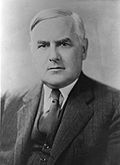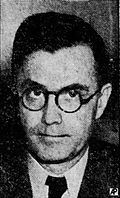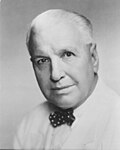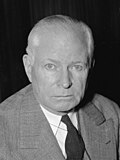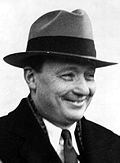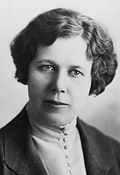1938 United States Senate elections
| ||||||||||||||||||||||||||||||||||||||||||||||||||||||||||||||||||||||||||||||||||||||||||
35 of the 96 seats in the United States Senate 49 seats needed for a majority | ||||||||||||||||||||||||||||||||||||||||||||||||||||||||||||||||||||||||||||||||||||||||||
|---|---|---|---|---|---|---|---|---|---|---|---|---|---|---|---|---|---|---|---|---|---|---|---|---|---|---|---|---|---|---|---|---|---|---|---|---|---|---|---|---|---|---|---|---|---|---|---|---|---|---|---|---|---|---|---|---|---|---|---|---|---|---|---|---|---|---|---|---|---|---|---|---|---|---|---|---|---|---|---|---|---|---|---|---|---|---|---|---|---|---|
| ||||||||||||||||||||||||||||||||||||||||||||||||||||||||||||||||||||||||||||||||||||||||||
 Results of the elections: Democratic hold Republican gain Republican hold No election | ||||||||||||||||||||||||||||||||||||||||||||||||||||||||||||||||||||||||||||||||||||||||||
| ||||||||||||||||||||||||||||||||||||||||||||||||||||||||||||||||||||||||||||||||||||||||||
The 1938 United States Senate elections occurred in the middle of Franklin D. Roosevelt's second term. The 32 seats of Class 3 were contested in regular elections, and special elections were held to fill vacancies. The Republicans gained eight seats from the Democrats, though this occurred after multiple Democratic gains since the 1932 election, leading to the Democrats retaining a commanding lead over the Republicans with more than two-thirds of the legislative chamber.
A contemporary account[1] cited a number of reasons for the losses suffered by the Democrats. The Recession of 1937 had continued into the first half of 1938, and had arguably weakened public confidence in the administration's New Deal economic policies, along with controversy over the Judicial Procedures Reform Bill of 1937 (Roosevelt's "court-packing" plan).
There were, in addition, strains between the more liberal New Deal supporters and the conservative wing of the Democratic party centered in the Southern states, which were exacerbated by an effort led by President Roosevelt to target certain conservative senators for defeat in Democratic primaries, including Walter George of Georgia, Millard Tydings of Maryland, Robert Rice Reynolds of North Carolina, and Ellison Smith of South Carolina. While a number of New Deal supporters won primary elections, such as Alben Barkley in Kentucky, who defeated Governor Happy Chandler, James P. Pope of Idaho, a prominent New Deal supporter, lost his bid for re-nomination, as did California's William McAdoo — though McAdoo's Democratic opponent, Sheridan Downey, had campaigned as a liberal New Dealer on many issues who would also do more to improve pension plans.[2]
President Franklin D. Roosevelt had faced opposition from conservative Democrats and the Republicans in Congress since the beginning of his presidency. Josiah Bailey, Edward R. Burke, Harry F. Byrd, James F. Byrnes, Walter F. George, Peter G. Gerry, Carter Glass, Pat Harrison, Rush Holt Sr., Kenneth McKellar, and Ellison D. Smith were the conservative Democratic senators that opposed Roosevelt's policies although Harrison, Burke, Byrnes, and McKellar had initially supported the First New Deal. Vice President John Nance Garner pushed for Roosevelt to support more conservative policies. The Republicans gained eight seats in the Senate while the Democrats maintained their majority. However, there were around twenty unreliable Democratic votes for Roosevelt which allowed conservatives to block some of his policies.[3]
Gains, losses, and holds
[edit]Retirements
[edit]One Democrat retired instead of seeking re-election, one Democrat retired instead of seeking election to finish the unexpired term and one Democrat retired instead of seeking election to finish the unexpired term and election to a full term.
| State | Senator | Replaced by |
|---|---|---|
| Illinois | William H. Dieterich | Scott W. Lucas |
| Oregon (special) | Alfred E. Reames | Alexander G. Barry |
| Oregon | Alfred E. Reames | Rufus C. Holman |
| South Dakota (special) |
Defeats
[edit]Seven Democrats sought re-election but lost in the primary or general election. One Democrat sought election to a full term but lost in the primary election and one Democrat sought election to finish the unexpired term but lost in the primary election.
Death
[edit]One Democrat died on June 17, 1938, and his seat remained vacant until the election.
| State | Senator | Replaced by |
|---|---|---|
| New York (special) | Royal S. Copeland | James M. Mead |
Post-election changes
[edit]Change in composition
[edit]Before the elections
[edit]| D1 | D2 | D3 | D4 | D5 | D6 | D7 | D8 | ||
| D18 | D17 | D16 | D15 | D14 | D13 | D12 | D11 | D10 | D9 |
| D19 | D20 | D21 | D22 | D23 | D24 | D25 | D26 | D27 | D28 |
| D38 | D37 | D36 | D35 | D34 | D33 | D32 | D31 | D30 | D29 |
| D39 | D40 | D41 | D42 | D43 | D44 | D45 | D46 Ala. (reg) Ala. (sp) Ran[a] | D47 Ariz. Ran | D48 Ark. Ran |
| Majority → | D49 Calif. Ran | ||||||||
| D58 Kan. Ran | D57 Iowa Ran | D56 Ind. Ran | D55 Ill. Retired | D54 Idaho Ran | D53 Ga. Ran | D52 Fla. Ran | D51 Conn. Ran | D50 Colo. Ran | |
| D59 Ky. Ran | D60 La. Ran | D61 Md. Ran | D62 Mo. Ran | D63 Nev. Ran | D64 N.H. Ran | D65 N.J. (sp) Retired | D66 N.Y. (reg) Ran | D67 N.Y. (sp) Died | D68 N.C. Ran |
| FL2 | D77 Wisc. Ran | D76 Wash. Ran | D75 Utah Ran | D74 Tenn. (sp) Ran | D73 S.D. (reg) Ran S.D. (sp) Retired | D72 S.C. Ran | D71 Ore. (reg) Ore. (sp) Retired | D70 Okla. Ran | D69 Ohio Ran |
| FL1 | I1 | P1 | R15 Vt. Ran | R14 Pa. Ran | R13 N.D. Ran | R12 | R11 | R10 | R9 |
| R1 | R2 | R3 | R4 | R5 | R6 | R7 | R8 | ||
Result of the elections
[edit]| D1 | D2 | D3 | D4 | D5 | D6 | D7 | D8 | ||
| D18 | D17 | D16 | D15 | D14 | D13 | D12 | D11 | D10 | D9 |
| D19 | D20 | D21 | D22 | D23 | D24 | D25 | D26 | D27 | D28 |
| D38 | D37 | D36 | D35 | D34 | D33 | D32 | D31 | D30 | D29 |
| D39 | D40 | D41 | D42 | D43 | D44 | D45 | D46 Ala. (sp) Elected[b][a] Ala. (reg) Re-elected[a] | D47 Ariz. Re-elected | D48 Ark. Re-elected |
| Majority → | D49 Calif. Hold | ||||||||
| D58 La. Re-elected | D57 Ky. Re-elected | D56 Iowa Re-elected | D55 Ind. Re-elected | D54 Ill. Hold | D53 Idaho Hold | D52 Ga. Re-elected | D51 Fla. Re-elected | D50 Colo. Re-elected | |
| D59 Md. Re-elected | D60 Mo. Re-elected | D61 Nev. Re-elected | D62 N.Y. (reg) Re-elected | D63 N.Y. (sp) Hold | D64 N.C. Re-elected | D65 Okla. Re-elected | D66 S.C. Re-elected | D67 Tenn. (sp) Hold | D68 Utah Re-elected |
| R19 N.J. (sp) Gain | R20 Ohio Gain | R21 Ore. (reg) Ore. (sp) Gain | R22 S.D. (reg) S.D. (sp) Gain | R23 Wisc. Gain | P1 | I1 | FL1 | FL2 | D69 Wash. Re-elected |
| R18 N.H. Gain | R17 Kan. Gain | R16 Conn. Gain | R15 Vt. Re-elected | R14 Pa. Re-elected | R13 N.D. Re-elected | R12 | R11 | R10 | R9 |
| R1 | R2 | R3 | R4 | R5 | R6 | R7 | R8 | ||
| Key: |
|
|---|
Race summaries
[edit]Special elections during the 75th Congress
[edit]In these special elections, the winner was seated during 1938 or before January 3, 1939; ordered by election date.
| State | Incumbent | Results | Candidates | ||
|---|---|---|---|---|---|
| Senator | Party | Electoral history | |||
| Alabama (Class 3) | J. Lister Hill | Democratic | 1938 (Appointed) | Interim appointee elected April 26, 1938. |
|
| New Jersey (Class 1) | John Milton | Democratic | 1938 (Appointed) | Interim appointee retired. Winner elected November 8, 1938. Republican gain. |
|
| New York (Class 1) | Royal S. Copeland | Democratic | 1922 1928 1934 | Incumbent died June 17, 1938. Winner elected November 8, 1938. Democratic hold. |
|
| Oregon (Class 3) | Alfred E. Reames | Democratic | 1938 (Appointed) | Interim appointee retired. Winner elected November 8, 1938. Republican gain. Winner did not run for the next term, however; see below. |
|
| South Dakota (Class 3) | Herbert E. Hitchcock | Democratic | 1936 (Appointed) | Interim appointee retired. Winner elected November 8, 1938. Republican gain. Winner did not run for the next term, however; see below. |
|
| Tennessee (Class 2) | George L. Berry | Democratic | 1937 (Appointed) | Interim appointee lost nomination to finish the term. Winner elected November 8, 1938. Democratic hold. Winner delayed his term until January 16, 1939, to finish his term as district attorney. |
|
Races leading to the 76th Congress
[edit]In these general elections, the winners were elected for the term beginning January 3, 1939; ordered by state.
All of the elections involved the Class 3 seats.
| State | Incumbent | Results | Candidates | ||
|---|---|---|---|---|---|
| Senator | Party | Electoral history | |||
| Alabama | J. Lister Hill | Democratic | 1938 (Appointed) 1938 (special) | Incumbent re-elected. |
|
| Arizona | Carl Hayden | Democratic | 1926 1932 | Incumbent re-elected. |
|
| Arkansas | Hattie Caraway | Democratic | 1931 (Appointed) 1932 (special) | Incumbent re-elected. |
|
| California | William Gibbs McAdoo | Democratic | 1932 | Incumbent lost renomination. New senator elected. Democratic hold. Incumbent then resigned and Thomas M. Storke (D) was appointed to finish the term. |
|
| Colorado | Alva B. Adams | Democratic | 1923 (Appointed) 1924 (Retired) 1932 | Incumbent re-elected. |
|
| Connecticut | Augustine Lonergan | Democratic | 1932 | Incumbent lost re-election. New senator elected. Republican gain. |
|
| Florida | Claude Pepper | Democratic | 1936 (special) | Incumbent re-elected. |
|
| Georgia | Walter F. George | Democratic | 1922 (special) 1926 1932 | Incumbent re-elected. |
|
| Idaho | James P. Pope | Democratic | 1932 | Incumbent lost renomination. New senator elected. Democratic hold. |
|
| Illinois | William H. Dieterich | Democratic | 1932 | Incumbent retired. New senator elected. Democratic hold. |
|
| Indiana | Frederick Van Nuys | Democratic | 1932 | Incumbent re-elected. |
Others
|
| Iowa | Guy Gillette | Democratic | 1936 (special) | Incumbent re-elected. |
|
| Kansas | George McGill | Democratic | 1930 (special) 1932 | Incumbent lost re-election. New senator elected. Republican gain. |
|
| Kentucky | Alben W. Barkley | Democratic | 1926 1932 | Incumbent re-elected. |
|
| Louisiana | John H. Overton | Democratic | 1932 | Incumbent re-elected. |
|
| Maryland | Millard Tydings | Democratic | 1926 1932 | Incumbent re-elected. |
|
| Missouri | Bennett Champ Clark | Democratic | 1932 1933 (Appointed) | Incumbent re-elected. |
|
| Nevada | Pat McCarran | Democratic | 1932 | Incumbent re-elected. |
|
| New Hampshire | Fred H. Brown | Democratic | 1932 | Incumbent lost re-election. New senator elected. Republican gain. |
|
| New York | Robert F. Wagner | Democratic | 1926 1932 | Incumbent re-elected. |
|
| North Carolina | Robert R. Reynolds | Democratic | 1932 (special) 1932 | Incumbent re-elected. |
|
| North Dakota | Gerald Nye | Republican | 1925 (Appointed) 1926 (special) 1932 | Incumbent re-elected. |
|
| Ohio | Robert J. Bulkley | Democratic | 1930 (special) 1932 | Incumbent lost re-election. New senator elected. Republican gain. |
|
| Oklahoma | Elmer Thomas | Democratic | 1926 1932 | Incumbent re-elected. |
|
| Oregon | Alfred E. Reames | Democratic | 1938 (Appointed) | Interim appointee retired. New senator elected. Republican gain. |
|
| Pennsylvania | James J. Davis | Republican | 1930 (special) 1932 | Incumbent re-elected. |
|
| South Carolina | Ellison D. Smith | Democratic | 1909 1914 1920 1926 1932 | Incumbent re-elected. |
|
| South Dakota | Herbert E. Hitchcock | Democratic | 1936 (Appointed) | Interim appointee lost nomination to next term. New senator elected. Republican gain. |
|
| Utah | Elbert D. Thomas | Democratic | 1932 | Incumbent re-elected. |
|
| Vermont | Ernest W. Gibson | Republican | 1933 (Appointed) 1934 (special) | Incumbent re-elected. |
|
| Washington | Homer Bone | Democratic | 1932 | Incumbent re-elected. |
|
| Wisconsin | F. Ryan Duffy | Democratic | 1932 | Incumbent lost re-election. New senator elected. Republican gain. |
|
Closest races
[edit]Thirteen races had a margin of victory under 10%:
| State | Party of winner | Margin |
|---|---|---|
| Indiana | Democratic | 0.3% |
| Iowa | Democratic | 0.3% |
| Connecticut | Republican (flip) | 2.9% |
| Illinois | Democratic | 3.0% |
| South Dakota | Republican (flip) | 5.0% |
| Ohio | Republican (flip) | 7.2% |
| New Jersey | Republican (flip) | 7.3% |
| North Dakota | Democratic | 7.5% |
| New Hampshire | Republican (flip) | 8.4% |
| New York | Democratic | 9.5% |
| California | Democratic | 9.7% |
| Idaho | Democratic | 9.8% |
| Oregon | Republican (flip) | 9.8% |
There is no tipping point state.
Alabama
[edit]There were 2 elections due to the August 19, 1937, resignation of two-term Democrat Hugo Black. Democrat Dixie Bibb Graves was appointed August 20, 1937 (by her husband, the governor) to finish Black's term.
Alabama (special)
[edit]
| |||||||||||||||||
| |||||||||||||||||
 County results Hill: 40–50% 50–60% 60–70% 70–80% 80–90% >90% Heflin: 50–60% 60–70% | |||||||||||||||||
| |||||||||||||||||
| Party | Candidate | Votes | % | ||
|---|---|---|---|---|---|
| Democratic | J. Lister Hill | 90,601 | 61.81% | ||
| Democratic | James Thomas Heflin | 50,189 | 34.24% | ||
| Democratic | Charles W. Williams | 5,783 | 3.95% | ||
| Turnout | 1.87% | ||||
| Democratic hold | |||||
| Majority | 40,412 | 27.57% | |||
After congressman J. Lister Hill won the January 4, 1938, Democratic primary, Graves resigned and Hill was appointed to continue the term until the April 26, 1938, special election, which he won unopposed.
| Party | Candidate | Votes | % | ||
|---|---|---|---|---|---|
| Democratic | J. Lister Hill (Incumbent) | 49,429 | 100.00% | ||
| Turnout | 1.87% | ||||
| Democratic hold | |||||
Hill was then easily re-elected in November to the next term.
Alabama (regular)
[edit]
| |||||||||||||||||
| |||||||||||||||||
 County results Hill: 50–60% 60–70% 70–80% 80–90% 90-100% Heflin: 50–60% | |||||||||||||||||
| |||||||||||||||||
| Party | Candidate | Votes | % | ||
|---|---|---|---|---|---|
| Democratic | J. Lister Hill (Incumbent) | 113,413 | 86.38% | ||
| Republican | J. M. Pennington | 17,885 | 13.62% | ||
| None | Scattering | 1 | 0.00% | ||
| Majority | 95,528 | 72.76% | |||
| Turnout | 131,299 | 4.96% | |||
| Democratic hold | |||||
Arizona
[edit]
| |||||||||||||||||
| |||||||||||||||||
 County results Hayden: 70–80% 80–90% >90% | |||||||||||||||||
| |||||||||||||||||
Incumbent Democrat Carl Hayden was re-elected to a third term, defeating Republican nominee Burt H. Clingan, chairman of the Arizona Industrial Commission, in the general election.
In contrast to previous elections, Hayden was easily reelected, receiving only token opposition from a relatively unknown Republican challenger.
| Party | Candidate | Votes | % | |
|---|---|---|---|---|
| Democratic | Carl T. Hayden (Incumbent) | 68,328 | 65.48% | |
| Democratic | Robert E. Miller | 22,154 | 21.23% | |
| Democratic | Whit I. Hughes | 13,867 | 13.29% | |
| Total votes | 104,349 | 100.00 | ||
| Party | Candidate | Votes | % | |
|---|---|---|---|---|
| Democratic | Carl T. Hayden (Incumbent) | 82,714 | 76.52% | |
| Republican | Burt H. Clingan | 25,378 | 23.48% | |
| Majority | 57,336 | 53.04% | ||
| Turnout | 108,092 | |||
| Democratic hold | ||||
Arkansas
[edit]
| |||||||||||||||||
| |||||||||||||||||
 County results Caraway: 50–60% 60–70% 70–80% 80–90% >90% | |||||||||||||||||
| |||||||||||||||||
| Party | Candidate | Votes | % | |
|---|---|---|---|---|
| Democratic | Hattie Wyatt Caraway (Incumbent) | 122,883 | 89.58% | |
| Republican | C. T. Atkinson | 14,290 | 10.42% | |
| Majority | 108,593 | 79.16% | ||
| Turnout | 137,173 | |||
| Democratic hold | ||||
California
[edit]
| ||||||||||||||||||||
| ||||||||||||||||||||
 County results Downey: 40–50% 50–60% 60–70% Bancroft: 40–50% 50–60% 70–80% | ||||||||||||||||||||
| ||||||||||||||||||||
| Party | Candidate | Votes | % | |
|---|---|---|---|---|
| Democratic | Sheridan Downey | 1,372,314 | 54.41% | |
| Republican | Philip Bancroft | 1,126,240 | 44.65% | |
| Socialist | Lillian Symes Clements | 22,569 | 0.89% | |
| None | Scattering | 1,019 | 0.04% | |
| Majority | 246,074 | 9.76% | ||
| Turnout | 2,522,142 | |||
| Democratic hold | ||||
Colorado
[edit]
| |||||||||||||||||
| |||||||||||||||||
 Results by county Adams: 50–60% 60–70% 70–80% Lee: 40–50% 50–60% | |||||||||||||||||
| |||||||||||||||||
| Party | Candidate | Votes | % | |
|---|---|---|---|---|
| Democratic | Alva B. Adams (Incumbent) | 262,786 | 58.24% | |
| Republican | Archibald A. Lee | 181,297 | 40.18% | |
| Socialist | Carle Whitehead | 3,604 | 0.80% | |
| Independent Progressive | James Allander | 3,522 | 0.78% | |
| Majority | 81,489 | 18.06% | ||
| Turnout | 451,209 | |||
| Democratic hold | ||||
Connecticut
[edit]
| |||||||||||||||||||||||||
| |||||||||||||||||||||||||
Danaher: 30–40% 40–50% 50–60% 60–70% 70–80% Lonergan: 30–40% 40–50% 50–60% 60–70% Trombley: 40–50% Tie: 30–40% | |||||||||||||||||||||||||
| |||||||||||||||||||||||||
| Party | Candidate | Votes | % | |
|---|---|---|---|---|
| Republican | John A. Danaher | 270,413 | 42.89% | |
| Democratic | Augustine Lonergan (Incumbent) | 252,426 | 40.04% | |
| Socialist | Bellani Trombley | 99,282 | 15.75% | |
| Socialist Labor | Joseph Mackey | 6,931 | 1.10% | |
| American Labor | Philip Brainard | 766 | 0.12% | |
| Communist | Michael A. Russo | 615 | 0.10% | |
| Majority | 17,987 | 2.85% | ||
| Turnout | 630,433 | |||
| Republican gain from Democratic | ||||
Florida
[edit]
| |||||||||||||||||
| |||||||||||||||||
 County results Pepper: 60–70% 70–80% 80–90% 90-100% | |||||||||||||||||
| |||||||||||||||||
| Party | Candidate | Votes | % | |
|---|---|---|---|---|
| Democratic | Claude Pepper (Incumbent) | 145,757 | 82.45% | |
| Republican | Thomas E. Swanson | 31,035 | 17.55% | |
| Majority | 114,722 | 64.90% | ||
| Turnout | 176,792 | |||
| Democratic hold | ||||
Georgia
[edit]
| |||||||||||||||||||||||||
| |||||||||||||||||||||||||
 County results George: 30–40% 40–50% 50–60% 60–70% 70–80% Talmadge: 30–40% 40–50% 50–60% 60–70% Camp: 30–40% 40–50% 50–60% 60–70% | |||||||||||||||||||||||||
| |||||||||||||||||||||||||
| Party | Candidate | Votes | % | |
|---|---|---|---|---|
| Democratic | Walter F. George (Incumbent) | 66,987 | 95.09% | |
| Independent | Charles A. Jiles | 3,442 | 4.89% | |
| Independent | Eugene Talmadge | 14 | 0.02% | |
| Majority | 63,545 | 90.20% | ||
| Turnout | 70,443 | |||
| Democratic hold | ||||
Idaho
[edit]
| |||||||||||||||||
| |||||||||||||||||
 County results Clark: 50–60% 60–70% Callahan: 50-60% 60-70% | |||||||||||||||||
| |||||||||||||||||
| Party | Candidate | Votes | % | |
|---|---|---|---|---|
| Democratic | David Worth Clark | 99,801 | 54.66% | |
| Republican | Donald A. Callahan | 81,939 | 44.88% | |
| Progressive | V. A. Verhei | 845 | 0.46% | |
| Majority | 17,862 | 9.78% | ||
| Turnout | 182,585 | |||
| Democratic hold | ||||
Illinois
[edit]
| |||||||||||||||||
| |||||||||||||||||
 County results Lucas: 50–60% 60–70% Lyons: 40–50% 50–60% 60–70% 70–80% | |||||||||||||||||
| |||||||||||||||||
Incumbent Democrat William H. Dieterich retired, making this an open-seat.
| Party | Candidate | Votes | % | |
|---|---|---|---|---|
| Democratic | Scott W. Lucas | 1,638,162 | 51.32% | |
| Republican | Richard J. Lyons | 1,542,574 | 48.33% | |
| Prohibition | Enoch A. Holtwick | 10,707 | 0.34% | |
| None | Scattering | 569 | 0.02% | |
| Majority | 95,588 | 2.99% | ||
| Turnout | 3,192,012 | |||
| Democratic hold | ||||
Indiana
[edit]
| |||||||||||||||||
| |||||||||||||||||
 County results Van Nuys: 40–50% 50–60% 60–70% Willis: 40–50% 50–60% 60–70% | |||||||||||||||||
| |||||||||||||||||
| Party | Candidate | Votes | % | |
|---|---|---|---|---|
| Democratic | Frederick Van Nuys (Incumbent) | 788,386 | 49.85% | |
| Republican | Raymond E. Willis | 783,189 | 49.52% | |
| Prohibition | Herman L. Seeger | 6,905 | 0.44% | |
| Socialist | Louis E. Roebuck | 2,026 | 0.13% | |
| Communist | Miles Blansett | 984 | 0.06% | |
| Majority | 5,197 | 0.33% | ||
| Turnout | 1,581,490 | |||
| Democratic hold | ||||
Iowa
[edit]
| |||||||||||||||||
| |||||||||||||||||
 Gillette: 40–50% 50–60% 60–70% 70–80% Dickinson: 40–50% 50–60% 60–70% | |||||||||||||||||
| |||||||||||||||||
| Party | Candidate | Votes | % | |
|---|---|---|---|---|
| Democratic | Guy Gillette (Incumbent) | 413,788 | 49.74% | |
| Republican | Lester J. Dickinson | 410,983 | 49.41% | |
| Farmer–Labor | George F. Buresch | 4,723 | 0.57% | |
| Progressive | Raymond E. Hanke | 1,525 | 0.18% | |
| Prohibition | G. W. Bauseman | 820 | 0.10% | |
| Majority | 2,805 | 0.33% | ||
| Turnout | 831,839 | |||
| Democratic hold | ||||
Kansas
[edit]
| |||||||||||||||||
| |||||||||||||||||
 County results Reed: 50–60% 60–70% McGill: 50–60% | |||||||||||||||||
| |||||||||||||||||
This is the last time that a Senator from Kansas lost re-election. Republicans have not lost a Senate election in the state since.
| Party | Candidate | Votes | % | |
|---|---|---|---|---|
| Republican | Clyde M. Reed | 419,532 | 56.21% | |
| Democratic | George McGill (Incumbent) | 326,774 | 43.78% | |
| Independent | Joe Corpstein | 99 | 0.01% | |
| Majority | 92,758 | 12.43% | ||
| Turnout | 746,405 | |||
| Republican gain from Democratic | ||||
Kentucky
[edit]
| |||||||||||||||||
| |||||||||||||||||
 County results Barkley: 50–60% 60–70% 70–80% 80–90% >90% Haswell: 50–60% 60–70% 70–80% 80–90% | |||||||||||||||||
| |||||||||||||||||
| Party | Candidate | Votes | % | |
|---|---|---|---|---|
| Democratic | Alben W. Barkley (Incumbent) | 346,735 | 62.03% | |
| Republican | John P. Haswell | 212,266 | 37.97% | |
| Democratic | Happy Chandler (write-in) | 20 | 0.00% | |
| Majority | 134,469 | 22.06% | ||
| Turnout | 559,021 | |||
| Democratic hold | ||||
Louisiana
[edit]| Party | Candidate | Votes | % | |
|---|---|---|---|---|
| Democratic | John H. Overton (Incumbent) | 151,582 | 99.84% | |
| Independent | Maurice E. Clark | 250 | 0.16% | |
| Majority | 151,332 | 99.68% | ||
| Turnout | 151,832 | |||
| Democratic hold | ||||
Maryland
[edit]
| |||||||||||||||||
| |||||||||||||||||
 County results Tydings: 50–60% 60–70% 70–80% | |||||||||||||||||
| |||||||||||||||||
| Party | Candidate | Votes | % | |
|---|---|---|---|---|
| Democratic | Millard Tydings (Incumbent) | 357,245 | 68.28% | |
| Republican | Oscar Lesser | 153,253 | 29.29% | |
| Union | George W. Hunt | 5,784 | 1.11% | |
| Socialist | Elisabeth Gilman | 3,311 | 0.63% | |
| American Labor | Frank N. H. Lang | 2,330 | 0.45% | |
| Communist | Harry Straw | 1,301 | 0.25% | |
| Majority | 203,992 | 38.99% | ||
| Turnout | 523,238 | |||
| Democratic hold | ||||
Missouri
[edit]
| |||||||||||||||||
| |||||||||||||||||
 County results Clark: 50–60% 60–70% 70–80% 80–90% Caulfield: 50–60% 60–70% 70–80% | |||||||||||||||||
| |||||||||||||||||
| Party | Candidate | Votes | % | |
|---|---|---|---|---|
| Democratic | Bennett Champ Clark (Incumbent) | 757,587 | 60.69% | |
| Republican | Henry S. Caulfield | 488,687 | 39.15% | |
| Socialist | J. G. Hodges | 1,712 | 0.14% | |
| Socialist Labor | Karl L. Oberhue | 292 | 0.02% | |
| Majority | 268,900 | 21.54% | ||
| Turnout | 1,248,278 | |||
| Democratic hold | ||||
Nevada
[edit]
| |||||||||||||||||
| |||||||||||||||||
 County results McCarran: 50–60% 60–70% 70–80% 80–90% Oddie: 50–60% | |||||||||||||||||
| |||||||||||||||||
| Party | Candidate | Votes | % | |
|---|---|---|---|---|
| Democratic | Pat McCarran (Incumbent) | 27,406 | 58.96% | |
| Republican | Tasker Oddie | 19,078 | 41.04% | |
| Majority | 8,328 | 17.92% | ||
| Turnout | 46,484 | |||
| Democratic hold | ||||
New Hampshire
[edit]
| |||||||||||||||||
| |||||||||||||||||
 County results Tobey: 50-60% 60-70% Brown: 50–60% | |||||||||||||||||
| |||||||||||||||||
| Party | Candidate | Votes | % | |
|---|---|---|---|---|
| Republican | Charles W. Tobey | 100,633 | 54.23% | |
| Democratic | Fred H. Brown (Incumbent) | 84,920 | 45.77% | |
| Majority | 15,713 | 8.46% | ||
| Turnout | 185,553 | |||
| Republican gain from Democratic | ||||
New Jersey (special)
[edit]
| |||||||||||||||||
| |||||||||||||||||
 County results Barbour: 50–60% 60–70% 70–80% Ely: 50–60% 70–80% | |||||||||||||||||
| |||||||||||||||||
| Party | Candidate | Votes | % | |
|---|---|---|---|---|
| Republican | William Warren Barbour | 816,667 | 52.98% | |
| Democratic | William H. J. Ely | 704,159 | 45.68% | |
| Prohibition | Louis H. Kelley | 8,201 | 0.53% | |
| Socialist | John Palangio | 3,671 | 0.24% | |
| Townsend | Fred Turner | 3,521 | 0.23% | |
| Communist | William Norman | 3,515 | 0.23% | |
| Socialist Labor | John C. Butterworth | 1,873 | 0.12% | |
| Majority | 112,508 | 7.30% | ||
| Turnout | 1,541,607 | |||
| Republican gain from Democratic | ||||
New York
[edit]There were 2 elections due to the June 17, 1938, death of three-term Democrat Royal S. Copeland.
New York (regular)
[edit]
| ||||||||||||||||||||
| ||||||||||||||||||||
 County Results Wagner: 50–60% 60–70% 70–80% O'Brian: 50–60% 60–70% 70–80% | ||||||||||||||||||||
| ||||||||||||||||||||
New York Republicans nominated John Lord O'Brian for the U.S. Senate.[10] Democrats re-nominated the incumbent Wagner.[11] The American Labor Party endorsed Wagner.[12]
| Party | Candidate | Votes | % | |
|---|---|---|---|---|
| Democratic | Robert F. Wagner (Incumbent) | 2,098,919 | 45.80% | |
| American Labor | Robert F. Wagner (Incumbent) | 398,410 | 8.69% | |
| Total | Robert F. Wagner (Incumbent) | 2,497,029 | 54.48% | |
| Republican | John Lord O'Brian | 2,046,794 | 44.66% | |
| Independent Progressive | John Lord O'Brian | 11,821 | 0.26% | |
| 'Total' | John Lord O'Brian | 2,058,615 | 44.92% | |
| Socialist | Herman J. Hahn[c] | 23,553 | 0.51% | |
| Socialist Labor | O. Martin Olson[d] | 3,851 | 0.08% | |
| Total votes | 4,583,048 | 100.00% | ||
New York (special)
[edit]
| ||||||||||||||||||||
| ||||||||||||||||||||
 Mead: 50-60% 60-70% 70-80% Corsi: 50-60% 60-70% 70-80% | ||||||||||||||||||||
| ||||||||||||||||||||
New York Republicans nominated Edward Corsi for the short term to fill the vacancy caused by the death of Royal S. Copeland.[10] Democrats nominated James M. Mead.[11] The American Labor party endorsed Mead.[12]
| Democratic ticket | Republican ticket | American Labor ticket | Socialist ticket | ||||
|---|---|---|---|---|---|---|---|
| James M. Mead | 2,060,876 | Edward F. Corsi | 2,083,666 | James M. Mead | 378,028 | Harry W. Laidler | 27,161 |
North Carolina
[edit]
| |||||||||||||||||
| |||||||||||||||||
 Results by county Reynolds: 50–60% 60–70% 70–80% 80–90% >90% Jonas: 50–60% 60–70% | |||||||||||||||||
| |||||||||||||||||
| Party | Candidate | Votes | % | |
|---|---|---|---|---|
| Democratic | Robert Rice Reynolds (Incumbent) | 316,685 | 63.80% | |
| Republican | Charles A. Jonas | 179,650 | 36.20% | |
| Majority | 137,035 | 27.60% | ||
| Turnout | 496,335 | |||
| Democratic hold | ||||
North Dakota
[edit]
| |||||||||||||||||||||
| |||||||||||||||||||||
 County results Nye: 40-50% 50-60% 60-70% Langer: 40-50% 50-60% 60-70% | |||||||||||||||||||||
| |||||||||||||||||||||
| Party | Candidate | Votes | % | |
|---|---|---|---|---|
| Republican | Gerald Nye (Incumbent) | 131,907 | 50.12% | |
| Independent | William Langer | 112,007 | 42.56% | |
| Democratic | J. J. Nygard | 19,244 | 7.31% | |
| Majority | 19,900 | 7.56% | ||
| Turnout | 263,158 | |||
| Republican hold | ||||
Ohio
[edit]
| |||||||||||||||||
| |||||||||||||||||
 County results Taft: 50–60% 60–70% 70–80% Bulkley: 50–60% 60–70% | |||||||||||||||||
| |||||||||||||||||
| Party | Candidate | Votes | % | |
|---|---|---|---|---|
| Republican | Robert A. Taft | 1,255,414 | 53.62% | |
| Democratic | Robert J. Bulkley (Incumbent) | 1,085,792 | 46.38% | |
| Majority | 169,622 | 7.24% | ||
| Turnout | 2,341,206 | |||
| Republican gain from Democratic | ||||
Oklahoma
[edit]
| |||||||||||||||||
| |||||||||||||||||
 County results Thomas: 40–50% 50–60% 60–70% 70–80% 80–90% Glasser: 40–50% 50–60% | |||||||||||||||||
| |||||||||||||||||
| Party | Candidate | Votes | % | |
|---|---|---|---|---|
| Democratic | Elmer Thomas (Incumbent) | 307,936 | 65.37% | |
| Republican | Harry G. Glasser | 159,734 | 33.91% | |
| Prohibition | P. C. Nelson | 2,220 | 0.47% | |
| Independent | Raymond B. Clark | 603 | 0.13% | |
| Independent | Herndon J. Thompson | 573 | 0.12% | |
| Majority | 148,202 | 31.46% | ||
| Turnout | 471,066 | |||
| Democratic hold | ||||
Oregon
[edit]There were 2 elections for the same seat, due to the January 31, 1938, resignation of two-term Republican Frederick Steiwer. Democratic businessman Alfred E. Reames was appointed February 1, 1938, to continue the term, pending a special election, but he did not run in either the special or the general elections.
Oregon (special)
[edit]
| |||||||||||||||||
| |||||||||||||||||
 County results Barry: 50-60% 60-70% | |||||||||||||||||
| |||||||||||||||||
Republican Alexander G. Barry was elected to finish the term, but was not a candidate for the next term.
| Party | Candidate | Votes | % | |
|---|---|---|---|---|
| Republican | Alexander G. Barry | 180,815 | 54.20% | |
| Democratic | Robert A. Miller | 152,773 | 45.80% | |
| None | Scattering | 3 | 0.00% | |
| Majority | 28,042 | 8.40% | ||
| Turnout | 333,591 | |||
| Republican gain from Democratic | ||||
Oregon (regular)
[edit]
| |||||||||||||||||
| |||||||||||||||||
 County results Holman: 50-60% 60-70% 70-80% | |||||||||||||||||
| |||||||||||||||||
| Party | Candidate | Votes | % | |
|---|---|---|---|---|
| Republican | Rufus C. Holman | 203,120 | 54.86% | |
| Democratic | Willis Mahoney | 167,135 | 45.14% | |
| None | Scattering | 6 | 0.00% | |
| Majority | 35,985 | 9.72% | ||
| Turnout | 370,261 | |||
| Republican gain from Democratic | ||||
Pennsylvania
[edit]
| |||||||||||||||||
| |||||||||||||||||
 County Results: Davis: 40-50% 50-60% 60-70% 70-80% Earle: 50-60% | |||||||||||||||||
| |||||||||||||||||
| Party | Candidate | Votes | % | |
|---|---|---|---|---|
| Republican | James J. Davis (incumbent) | 2,086,931 | 54.70% | |
| Democratic | George H. Earle | 1,694,367 | 44.41% | |
| Socialist | David H. H. Felix | 20,155 | 0.53% | |
| Prohibition | Forest S. Van Valin | 9,327 | 0.24% | |
| Pathfinders | Reginald B. Naugle | 2,508 | 0.07% | |
| Communist | Pat Toohey | 1,530 | 0.04% | |
| None | Scattering | 104 | 0.00% | |
| Majority | 392,564 | 10.29% | ||
| Turnout | 3,814,922 | |||
| Republican hold | ||||
South Carolina
[edit]
| |||||||||||||||||
| |||||||||||||||||
 County results Smith: 50–60% 60–70% 70–80% Johnston: 50–60% 60–70% | |||||||||||||||||
| |||||||||||||||||
| Party | Candidate | Votes | % | |
|---|---|---|---|---|
| Democratic | Ellison D. Smith (Incumbent) | 45,351 | 98.89% | |
| Republican | J. D. E. Meyer | 508 | 1.11% | |
| None | Scattering | 2 | 0.00% | |
| Majority | 44,843 | 97.78% | ||
| Turnout | 45,861 | |||
| Democratic hold | ||||
South Dakota
[edit]There were 2 elections for the same seat due to the December 20, 1936, death of three-term Republican Peter Norbeck. Democrat Herbert Hitchcock was appointed December 29, 1936, to continue the term, pending a special election.
South Dakota (special)
[edit]
| |||||||||||||||||
| |||||||||||||||||
 County results Pyle: 50–60% 60–70% 70–80% 80–90% McCullen: 50–60% Tie: 50% No Vote: | |||||||||||||||||
| |||||||||||||||||
| Party | Candidate | Votes | % | |
|---|---|---|---|---|
| Republican | Gladys Pyle | 155,292 | 58.06% | |
| Democratic | John T. McCullen | 112,177 | 41.94% | |
| Majority | 43,115 | 16.12% | ||
| Turnout | 267,469 | |||
| Republican gain from Democratic | ||||
South Dakota (regular)
[edit]
| |||||||||||||||||
| |||||||||||||||||
 County results Gurney: 50–60% 60–70% 70–80% Berry: 50–60% 60–70% No Vote: | |||||||||||||||||
| |||||||||||||||||
Hitchcock lost the Democratic May 3, 1938, primary for the next term to Governor of South Dakota Tom Berry.[14]
| Party | Candidate | Votes | % | |
|---|---|---|---|---|
| Republican | John Chandler Gurney[15] | 146,813 | 52.46% | |
| Democratic | Tom Berry | 133,064 | 47.54% | |
| Majority | 13,749 | 4.92% | ||
| Turnout | 279,877 | |||
| Republican gain from Democratic | ||||
Tennessee (special)
[edit]
| |||||||||||||||||
| |||||||||||||||||
| |||||||||||||||||
| Party | Candidate | Votes | % | |
|---|---|---|---|---|
| Democratic | Tom Stewart | 194,028 | 70.50% | |
| Republican | Harley G. Fowler | 72,098 | 26.20% | |
| Independent | John Randolph Neal Jr. | 9,106 | 3.31% | |
| Majority | 21,930 | 44.30% | ||
| Turnout | 275,232 | |||
| Democratic hold | ||||
Utah
[edit]
| |||||||||||||||||
| |||||||||||||||||
 County results Thomas: 50–60% 60–70% Harris: 50–60% 60–70% | |||||||||||||||||
| |||||||||||||||||
| Party | Candidate | Votes | % | |
|---|---|---|---|---|
| Democratic | Elbert D. Thomas (Incumbent) | 102,353 | 55.80% | |
| Republican | Franklin S. Harris | 81,071 | 44.20% | |
| Majority | 21,282 | 11.60% | ||


 French
French Deutsch
Deutsch











